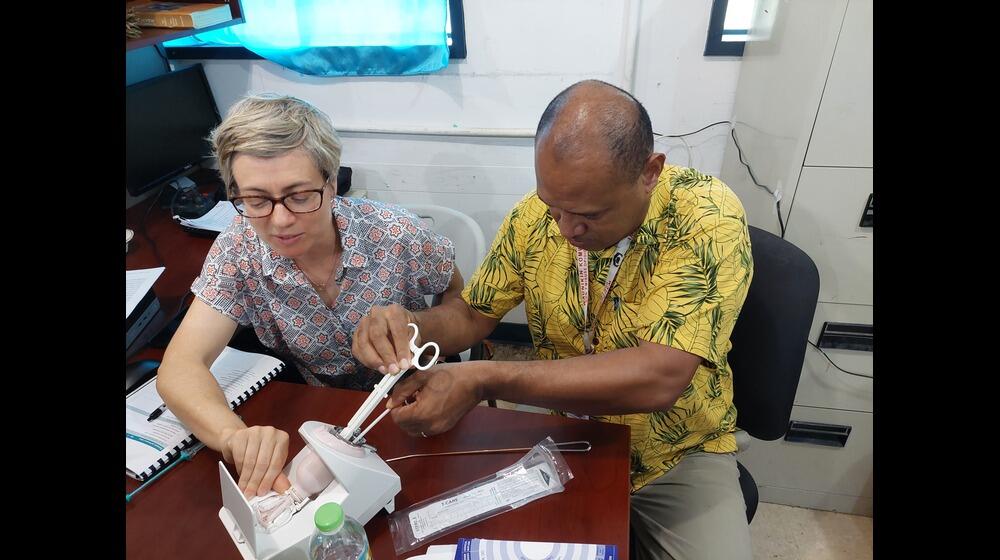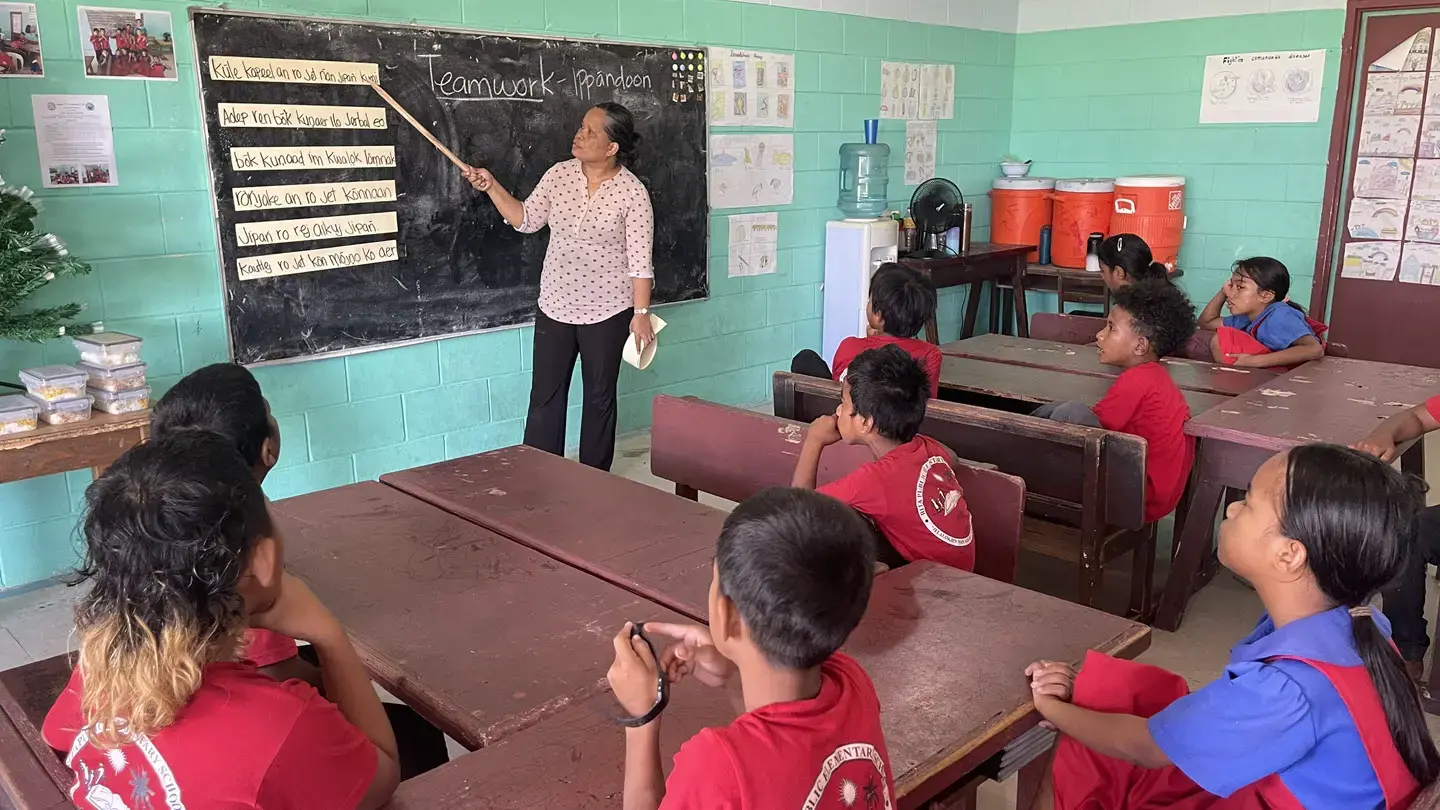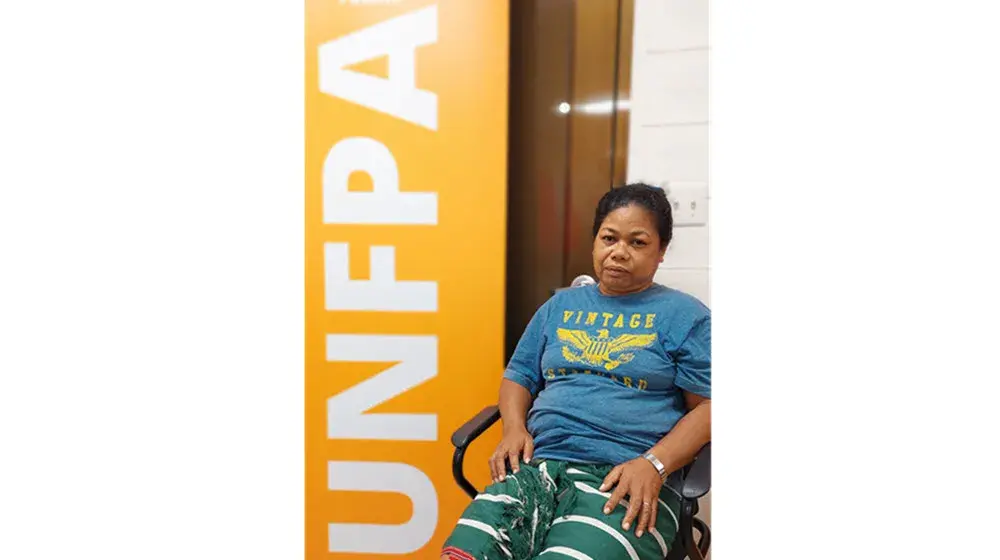POHNPEI, Federated States of Micronesia - “This training by UNFPA has boosted my confidence in advising my clients in the clinic in choosing the right family planning method for each of them,” said Ms. Jeanine Hebel, a Health Assistant from Wone Dispensary in Kitti, Pohnpei, the Federated States of Micronesia (FSM). She was among the 19 health service providers from various health facilities across FSM who participated in a capacity development workshop on family planning (FP) organized by the United Nations Population Fund (UNFPA) Pacific.
According to the most recently available data, 44 per cent of women in FSM have an “unmet need for family planning”— a woman wants to delay pregnancy or does not want to get pregnant but is not using any contraception. The contraceptive prevalence rate (CPR) which measures the proportion of married women of reproductive age (15-49) who are currently using any method of contraception, remains low in FSM at 19 per cent. The high adolescent birth rate is a reflection of both this high unmet need for FP and the low CPR. The use of family planning methods including condoms will help prevent unplanned pregnancies, and also reduce the risks of sexually transmitted infections. “Birth spacing” using family planning contraceptives also contributes to the elimination of maternal mortality and morbidities.
In this context, just recently in October 2023, UNFPA Pacific organized a FP training for doctors, midwives, nurses and other reproductive and maternal healthcare providers in FSM such as Ms. Hebel, using the FP training package that UNFPA had helped develop specifically for FSM last year, including a contraceptive flipchart. The training was opened by the-then Hon. Acting Secretary of Health and Social Affairs, Mr. Moses Petrick, and the visiting UNFPA Director for the Pacific and Representative in Fiji, Iori Kato.
“This training will help you, as the major healthcare service providers in the country, to be equipped with necessary knowledge and skills with which to provide high quality and rights-based Family Planning services, including about at least five modern methods of contraception, so that you can advise your clients in a friendly and non-judgmental way, for the couples, adolescent girls and boys, and persons with disabilities, to make informed and right choices about their bodies and for their future,” said UNFPA Director Kato.
The workshop was supported by UNFPA Pacific’s regional NGO partner Family Planning Australia. UNFPA also deployed a physician from Fiji, Dr Brian Guevara, who had been certified as a “Family Planning Champion Trainer” through a previous UNFPA Pacific ‘Training of Trainers’, as additional resource person for this FP training in FSM, which also promoted the South-South Cooperation between the small island developing states and strengthened the community of practice for family planning in the Pacific region.
With generous funding support from the Australian Department of Foreign Affairs and Trade (DFAT) and New Zealand Ministry of Foreign Affairs and Trade (MFAT), UNFPA Pacific is supporting health ministries of 14 island countries and territories in the region towards achieving the SDG Goal 3 to ensure universal access to sexual and reproductive health-care services, including for family planning, by ensuring a steady, reliable supply of quality contraceptives, strengthening national policies, health systems and human resources for family planning services, as well as enriching the quantity and quality of FP-related data.




